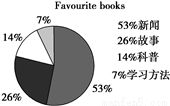题目内容
Personal computers and the Internet give people new choices about how to spend their time.
Some may use this freedom to share less time with certain friends or family members, but new technology will also let them stay in closer touch with those they care most about. I know this from personal experience.
E-mail makes it easy to work at home, which is where I now spend most weekends and evenings. My working hours aren’t necessarily much shorter than they once were but I spend fewer of them at the office. This lets me share more time with my young daughter than I might have if she’d been born before electronic mail became such a practical tool.
The Internet also makes it easy to share thoughts with a group of friends. Say you do something fun, see a great movie perhaps---and there are four or five friends who might want to hear about it. If you call each one, you may tire of telling the story.
With E-mail, you just write one note about your experience, at your convenience, and address (述说) it to all the friends who you think might be interested. They can read your message when they have time, and read only as much as they want to. They can reply at their convenience, and you can read what they have to say at your convenience.
E-mail is also an inexpensive way to stay in close touch with people who live far away. More than a few parents use E-mail to keep in touch, even daily touch, with their children off at college.
We just have to keep in mind that computers and the Internet offer another way of staying in touch. They don’t take the place of any of the old ways.
1.The purpose of this passage is to ______.
A. explain how to use the Internet
B. tell the merits (价值) and usefulness of the Internet
C. describe the writer’s joy of keeping up with the latest technology.
D. introduce the reader to basic knowledge about personal computers and the Internet
2.The use of E-mail has made it possible for the writer to ______.
A. spend less time working
B. work at home on weekends
C. have more free time with his child
D. work at a speed comfortable to him
3.The best title for this passage is ______.
A. Computer: New Technological Advances
B. Internet: New Tool to Maintain Good Friendship
C. Computers Have Made Life Easier
D. Internet: a Convenient Tool for Communication


